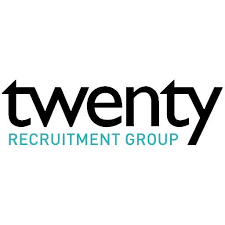
How to use Pinterest to add value to your company
In April we offered tips on writing a press release and, this time, we’re going to look at how Pinterest can add value to your company. Pinterest, which launched in 2012, is now the third most popular social network after Facebook and Twitter, so it’s perhaps not something you should ignore. It doesn’t work in the same way as most other networking platforms as there is no direct communication. However, it is becoming increasingly popular with businesses as a new platform for engagement. So how does it work? Pinterest is an online pinboard where you can ‘pin’ (post) images and videos. These can be uploaded from your computer, you can find them online, or you can re-pin images from other pinboards. When you pin from a website, Pinterest automatically credits the original creator by grabbing the source link, so you don’t need to worry about copyright issues. As well as having an image or video, you can give a description of the pin using up to 500 characters. You can also add a ‘Pin It’ button to your website so that users can take images and put them into Pinterest. When you’re confident with using the platform, you can find out your Pinterest influence to see how many followers you’ve got, how many people have ‘Liked’ your page, and how many repins there have been. You can do this by using apps such as Pinpuff or Pinerly, and it’s a useful tool for measuring ROI. So how could you use it for recruitment?

Recruiter Q&A: a&dc
Why do you use PR? At a&dc we are seen as leaders in the field of behavioural assessment and development, and our clients look to us for the latest thinking and research. In order to really portray ourselves as thought leaders, we feel that PR is absolutely critical. We have been working with BlueSky since September last year, and have come to rely on PR. We are now able to seek out opportunities within industry and national press, both in digital and in print, reaching a much wider audience. Social media is also important for us, and we now have a twitter following of over 500. BlueSky manages our twitter account for us, and it’s a great way of letting people know of any events we have coming up or blogs we’ve written. How do you measure ROI? We measure ROI in different ways. For example, by looking at inbound leads brought in through social media channels and articles, the number of social media followers we have and their interactions, and how many new article opportunities we have each month. Also, we look at SEO reporting on our brand terms because we recognise that digital PR has an impact in this area too.

Why recruitment firms should survey their clients and candidates
Just like businesses in other sectors, recruitment firms should survey their clients to gauge sentiment and identify anything that needs to be addressed – whether that’s a potential new opportunity or a possible threat. When you buy something online from eBay or Amazon, use an online help desk or even when you get your car serviced, you will, more likely than not, be sent a questionnaire asking you to rate your experience.

Recruiter Q&A: webrecruit
For some recruitment businesses the decision to undertake PR can be a hard one. Recruitment is hugely results driven and ROI is easily measurable. PR is different and can take some time to see results. This month we speak to Lucy Heskins from webrecruit about the value of PR. Why do you use PR? PR is an effective way to get our brand out further. We recognised that in order to build our brand and communicate with publics we wouldn’t have reached otherwise, PR needed to be a key part of our strategy. The Web has helped us to push out our messaging much quicker than had we opted for just traditional methods such as print. Whilst these are still extremely useful, the likes of online magazines, newsletters and blogs have helped us tenfold to distribute our messages.

The role of PR in building your brand – a BlueSky presentation
Our own Managing Director, Tracey Dunn, appeared on stage at the Recruitment Agency Expo today to talk to the crowded theatre about the role of PR in building and communicating a brand and its evolving nature. Her points were certainly well received, but for those of you who couldn’t make it, here are a few of her key recommendations when it comes to building your brand profile: A good brand grows your reputation and trust, making your organisation more attractive to not only potential clients, but also some of the best talent in the industry who you might want working for you Don’t think that just because you’re an SME, start up or a new division with a limited budget that you can’t afford to (and therefore shouldn’t) raise your profile. Look at some of the smaller things you can do to help build brand awareness instead PR can help build a brand by getting your voice out there in the public domain. If you are regularly appearing in the press talking about things you can sensibly be talking about – trends, skill shortages, recruitment and retention challenges for example - you will be seen as an industry thought leader and perhaps even a leading figure in your specialism Press coverage is a great tool to use in pitches as it shows your views are sought after. It is also much more impactful and has more credibility than brochures, websites and other marketing collateral When you go out to the press, make sure you target the right people by researching the publications in advance, looking at their interests, columns and which journalists write about what topic Make sure you have something news worthy to say – latest survey results, your opinion on current industry news and business announcements for example

Case Study: Twenty Recruitment
Media Relations in Action The company Twenty Recruitment was formed in January 2009, in the depths of the recession, by Paul Marsden and Adrian Kinnersley who were responsible for the rapid growth and sale of Astbury Marsden. The company specialises in mid to senior level appointments within the professional services, financial services and commerce & industry sectors across technology, finance and IT. The challenge

Recruiter Q&A
For some recruitment businesses, the decision to undertake PR can be a hard one. Recruitment is hugely results driven and ROI is easily measurable. PR is different, and it can take some time to see results. With this in mind, we thought we’d feature a Q&A in each newsletter with a recruiter who uses PR, and why they do so. This edition we speak to David Press, Director at DMJ Recruitment. Why do we use PR? We use PR for a variety of reasons but a key motive is that it places us as experts in the market place and gives us a ‘voice’ within a crowded and competitive industry. As a prominent presence in the market place, gaining coverage in broadsheets and targeted press allows us to enhance our brand but also stay at the forefront of our existing and potential clients’ minds, especially during difficult economic times. PR is also a very useful marketing tool when trying to win new business, allowing us to demonstrate our successes and experience. One of the most important parts of our PR activity is our social media strategy. We use Twitter, Linkedin, our blog and our website to demonstrate our wider interest and knowledge in our respective markets and to engage with our candidates and clients.

Recruiter Q&A
For some recruitment businesses, the decision to undertake PR can be a hard one. Recruitment is hugely results driven and ROI is easily measurable. PR is different, and it can take some time to see results. With this in mind, we thought we’d feature a Q&A in each newsletter with a recruiter who uses PR, and why they do so. This edition we speak to Maggie Berry, Managing Director of Women in Technology. Q: Why do you use PR? A: We use PR to make female technologists aware of the opportunities available to them in the sector, as well as helping businesses to understand the importance of gender equality in the workplace. We have so much to offer the industry that one of our major goals is to ensure that every woman in technology comes into contact with us at some point during their career. This can be through a networking event, through our site, or through reading our advice in the press coverage generated through PR. Another reason is that it has a completely different effect to advertising. Anyone with the right budget can buy advertising space, but PR places you as an expert in your field within prestigious and targeted trade publications.

Making first impressions count: How recruiters can establish a strong personal brand on LinkedIn
With many studies showing that you only have 10 seconds to make a good impression, it’s vital that recruitment professionals establish a strong personal brand on social media if they are to continue to make placements during these difficult times.

Recruiter Q&As
For some recruitment businesses, the decision to undertake PR can be a hard one. Recruitment is hugely results driven and ROI is easily measurable. PR is different, and it can take some time to see results. With this in mind, we thought we’d feature a Q&As with recruiters who use PR, and why they do so.

Recruiter Q&A
For some recruitment businesses, the decision to undertake PR can be a hard one. Recruitment is hugely result driven and ROI is easily measurable. PR is different, and can take some time to see results. With this in mind, we thought we’d feature a Q&A with a recruiter who uses PR, and why they do so. This edition we speak to Adrian Kinnersley, MD of multi sector professional recruiter Twenty Recruitment Group
Good PR starts with great customer service
Call me old fashioned, but I’m a firm believer in genuinely good service resulting in word of mouth as the first principle of PR,
The changing nature of PR
What is your definition of PR? In our monthly team meeting here at BlueSky we discussed the various clients we have and what level of PR support we provide them. One interesting question that was raised was do our clients, and do people on the whole get PR? If you asked 10 people how they defined PR I am pretty sure that the vast majority would say it was getting an organisation’s name into the news.
